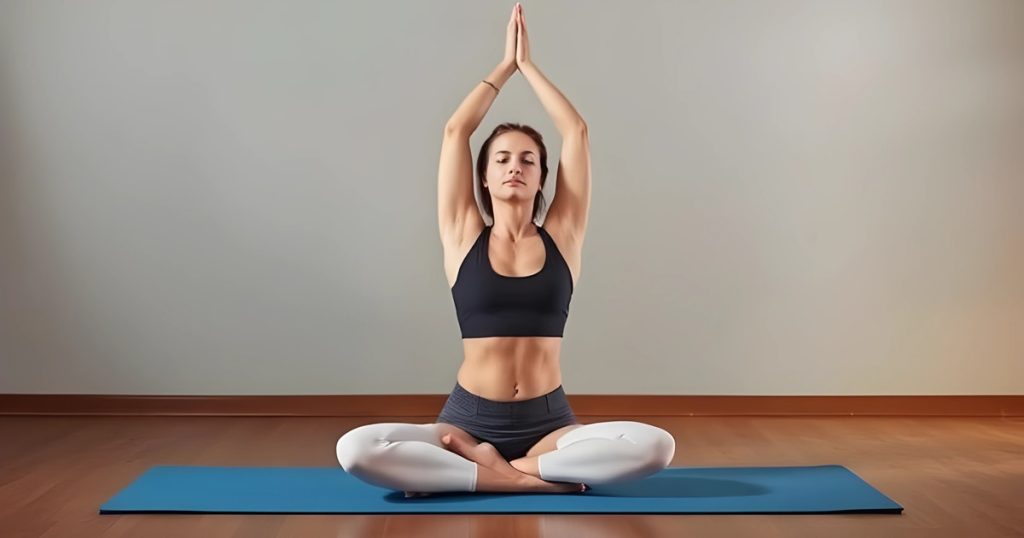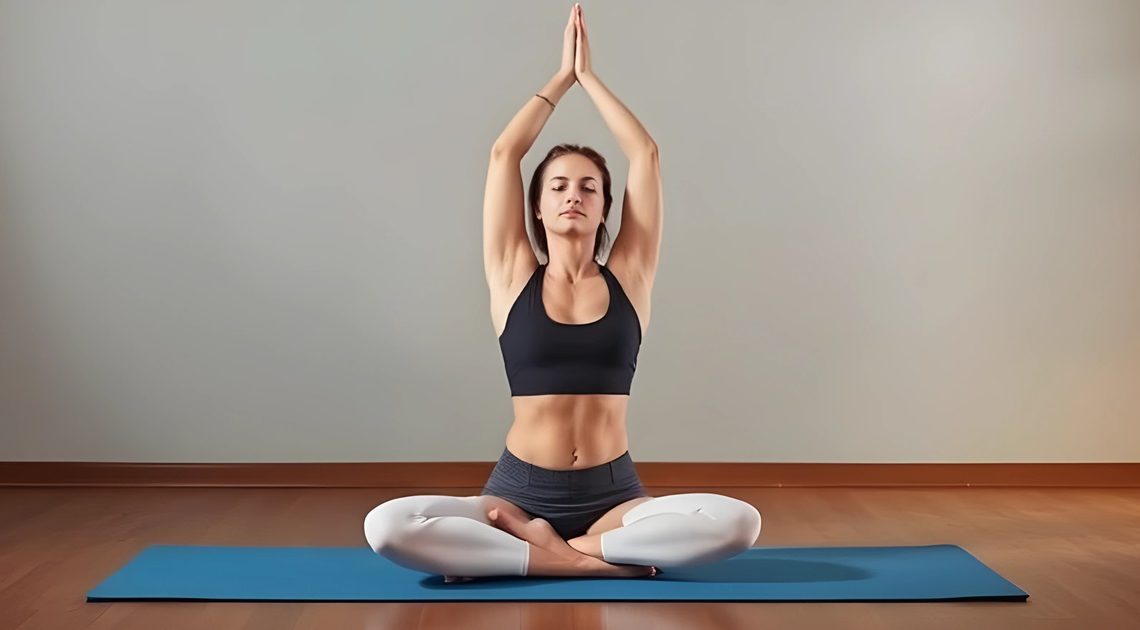Yoga has been practiced for thousands of years, and its popularity continues to grow as more people discover its profound impact on both mental and physical well-being. Whether you’re a seasoned yogi or a beginner, incorporating yoga into your daily routine can transform your life. Below, we explore 10 benefits of yoga that highlight why this ancient practice is so beneficial for your overall health.
Why Yoga is a Game-Changer for Health
Yoga is more than just a form of exercise; it’s a holistic practice that combines physical postures, breathing techniques, and meditation. This unique blend helps improve flexibility, strength, and mental clarity while reducing stress and anxiety. The benefits of yoga extend far beyond the mat, influencing every aspect of your life. Let’s dive into the top 10 ways yoga can enhance your mental and physical health.

1. Improves Flexibility and Mobility
One of the most noticeable benefits of yoga is improved flexibility. Regular practice stretches and lengthens muscles, making everyday movements easier and reducing the risk of injury. Poses like Downward Dog, Forward Fold, and Cobra gently work on tight areas, helping you achieve greater range of motion over time.
For those who sit at a desk all day, yoga can counteract the stiffness caused by prolonged sitting. Enhanced flexibility also supports better posture and alignment, which can alleviate chronic pain in the back, neck, and shoulders.
2. Builds Strength and Endurance
While yoga is often associated with relaxation, it’s also an excellent way to build strength. Many poses require you to support your body weight in new ways, engaging muscles you might not typically use. Poses like Plank, Warrior II, and Chair Pose target the core, arms, legs, and glutes, helping you develop lean muscle mass.
Unlike high-intensity workouts, yoga builds strength without putting excessive strain on your joints. This makes it a safe and effective option for people of all fitness levels.
3. Reduces Stress and Anxiety
In today’s fast-paced world, stress and anxiety are common challenges. Yoga offers a natural way to calm the mind and relax the body. The combination of deep breathing and mindful movement activates the parasympathetic nervous system, which helps reduce cortisol levels—the hormone responsible for stress.
Practices like Yin Yoga and Restorative Yoga are particularly effective for stress relief. These slower-paced styles encourage deep relaxation, allowing you to unwind and recharge.
4. Enhances Mental Clarity and Focus
Yoga isn’t just about physical postures; it’s also a mental exercise. The focus required to hold poses and synchronize breath with movement trains your mind to stay present. This mindfulness can carry over into other areas of your life, improving concentration and decision-making.
Meditation, often incorporated into yoga sessions, further enhances mental clarity. By quieting the mind, you can gain a fresh perspective and approach challenges with greater ease.
5. Boosts Immune Function
A strong immune system is essential for overall health, and yoga can help support it. Certain poses, such as twists and inversions, stimulate the lymphatic system, which plays a key role in detoxifying the body and fighting off infections.
Additionally, the stress-reducing effects of yoga contribute to a healthier immune system. Chronic stress weakens immunity, so managing stress through yoga can help you stay healthier year-round.
6. Promotes Better Sleep
If you struggle with insomnia or restless nights, yoga might be the solution. Gentle stretches and relaxation techniques prepare your body for rest by calming the nervous system. Practices like Yoga Nidra, also known as “yogic sleep,” are specifically designed to induce deep relaxation and improve sleep quality.
Even a short bedtime yoga routine can make a significant difference, helping you fall asleep faster and wake up feeling refreshed.
7. Supports Heart Health
Yoga is a heart-healthy practice that can lower blood pressure, reduce cholesterol levels, and improve circulation. The deep breathing exercises in yoga increase oxygen flow to the heart, while the physical postures promote cardiovascular endurance.
Studies have shown that regular yoga practice can reduce the risk of heart disease, making it a valuable addition to any wellness routine.
8. Encourages Mindfulness and Self-Awareness
Yoga encourages you to tune into your body and mind, fostering a deeper sense of self-awareness. This mindfulness can help you recognize unhealthy patterns, such as negative self-talk or emotional eating, and make positive changes.
By cultivating a non-judgmental attitude toward yourself, yoga promotes self-acceptance and emotional resilience.
9. Aids in Weight Management
While yoga may not burn calories as quickly as high-intensity workouts, it can still support weight management. The practice encourages mindful eating and helps regulate hormones that control appetite. Additionally, certain styles of yoga, like Vinyasa or Power Yoga, provide a more vigorous workout that can aid in weight loss.
Yoga also reduces stress, which is often linked to overeating and weight gain. By addressing the root causes of weight issues, yoga offers a sustainable approach to maintaining a healthy weight.
10. Improves Respiratory Function
Breathing is a fundamental aspect of yoga, and practices like Pranayama (breath control) can significantly enhance lung capacity and respiratory efficiency. Deep, controlled breathing strengthens the diaphragm and improves oxygen intake, which benefits overall health.
For those with respiratory conditions like asthma, yoga can be a valuable tool for managing symptoms and improving quality of life.

Conclusion
The benefits of yoga are vast and far-reaching, making it a powerful practice for enhancing both mental and physical health. From reducing stress and improving flexibility to boosting immunity and promoting better sleep, yoga offers something for everyone. Whether you’re looking to improve your fitness, find inner peace, or simply take a break from the chaos of daily life, yoga can help you achieve your goals.
Start with a few simple poses and gradually build your practice. Over time, you’ll likely notice positive changes in your body, mind, and overall well-being.
FAQs
Practicing yoga 2-3 times a week can yield noticeable benefits. However, even a short daily session can make a difference, especially for stress relief and flexibility.
Absolutely! Yoga is suitable for all fitness levels. Many classes and online tutorials cater specifically to beginners, offering modifications for different poses.
All you need is a yoga mat and comfortable clothing. Props like blocks, straps, and bolsters can be helpful but aren’t necessary for beginners.
Yes, but it’s important to consult with a healthcare provider or experienced yoga instructor. They can recommend modifications to ensure a safe and effective practice.
Yoga has been shown to reduce symptoms of depression by promoting relaxation, mindfulness, and the release of endorphins. It can be a helpful complement to other treatments.
By embracing yoga, you’re not just investing in your physical health—you’re nurturing your mind and spirit as well. Start your journey today and experience the transformative benefits of yoga for yourself!
By embracing yoga, you’re not just investing in your physical health—you’re nurturing your mind and spirit as well. Start your journey today and experience the transformative benefits of yoga for yourself!

